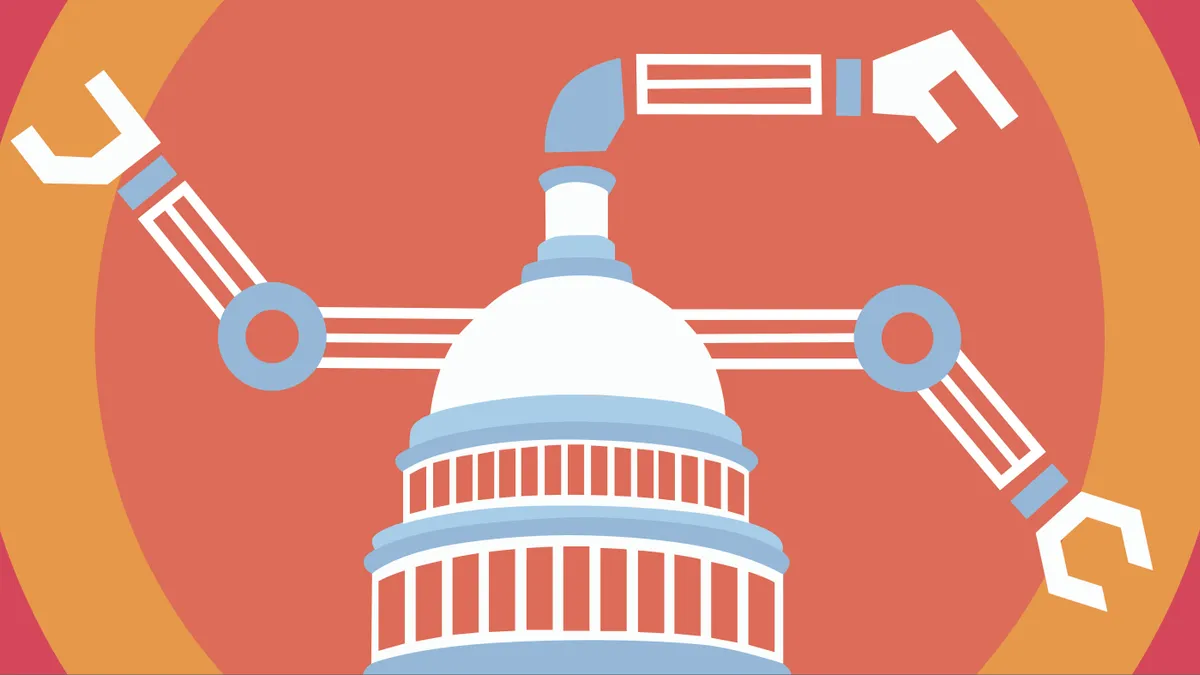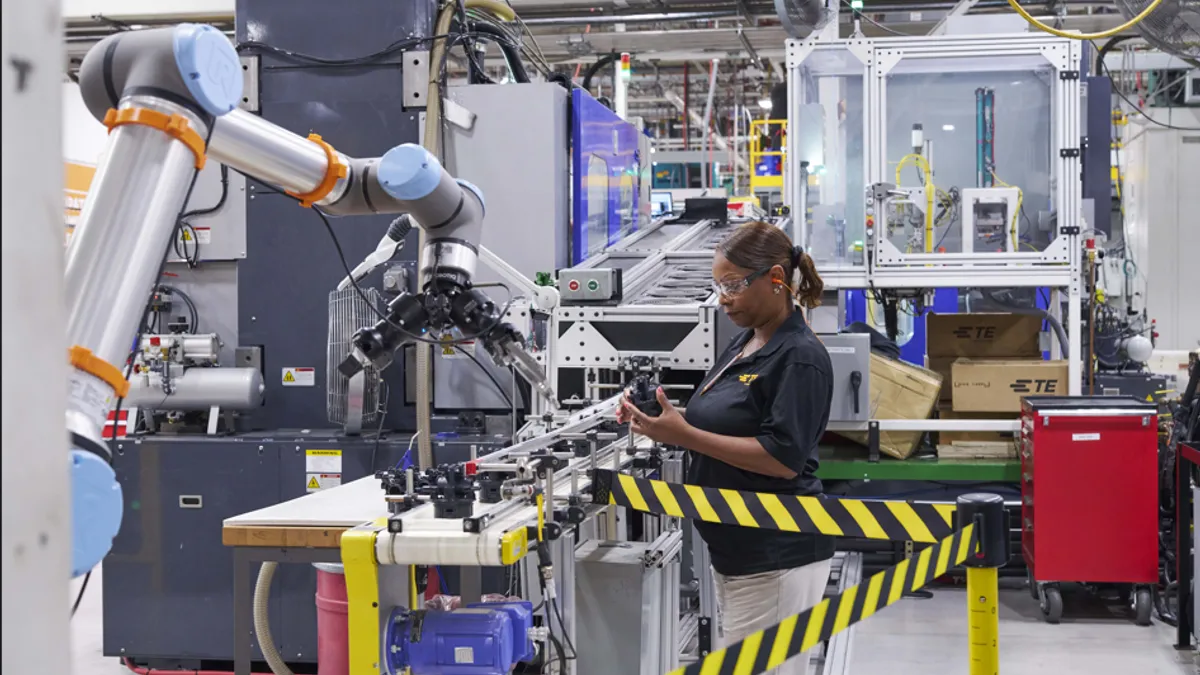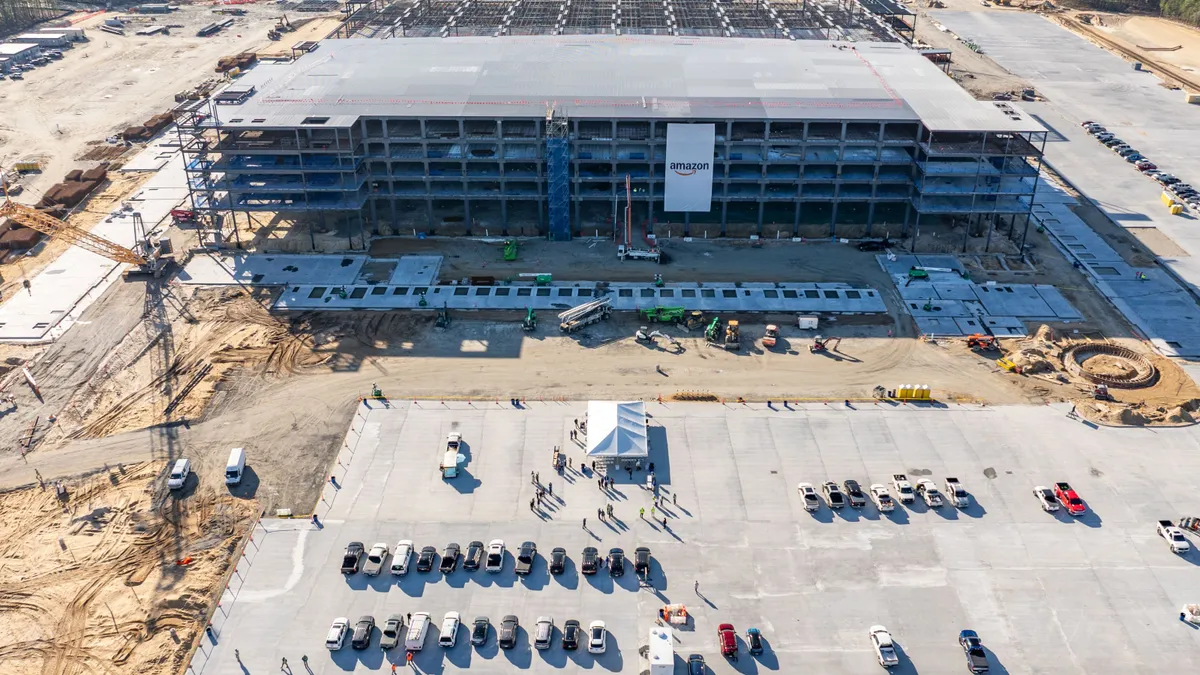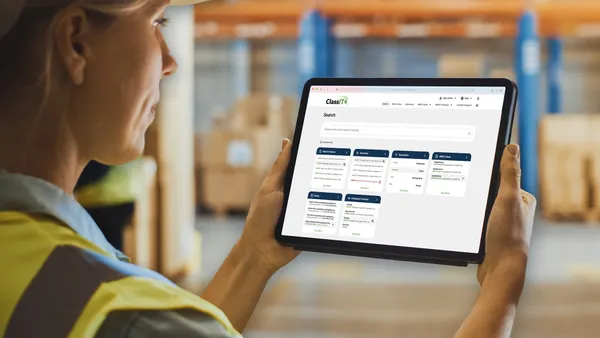Editor's Note: The following is a weekly column covering technology and regulation within the supply chain and logistics industries.
Trump's aid package isn't soothing farmers worried about the trade war
In what looks like a desperate attempt to win back key voters' goodwill, the Trump administration is offering a relief package to farmers should they feel negative effects from Chinese tariffs, assuming those tariffs are enacted, of course.
The Wall Street Journal reported the administration is looking to the Depression-era Commodity Credit Corporation, instituted in 1933 to "stabilize, support, and protect farm income and prices" (according to the Federal Register).
But some farmers don't want an aid package, they want free trade with China, so it looks like those votes may already be lost.
The Reaction: There is significant debate over whether the CCC actually helped farmers and didn't make the Great Depression worse, but more importantly, the effect on agricultural supply chains could be disastrous if the U.S. government picks winners and losers from a tariff spat.
Supply chains are already in a precarious position due to inflammatory rhetoric, and a government handout will only make their position more uncertain by elevating some farmers and leaving behind others that may not qualify for aid.
But it might not be as bad as it seems: the U.S. and China have both expressed a willingness to negotiate, which means the initial tariff threats may never be enacted. Farmers may still get the free trade they want.
Another warning not to single source...
Remember the Carillion liquidation? Because the U.K. construction industry relies so heavily on shared sourcing and suppliers, the loss of Carillion sent the industry into a tailspin. Now, in an attempt to stop something like that from ever happening again, the U.K. government wants to blacklist contractors that pay their suppliers late, according to PYMNTS.com.
The Reaction: Don't single source, and diversify your supplier base. That seems to be the lesson for every industry's supply chain, and Carillion isn't the only example; Toys R Us' liquidation is adversely affecting one of its key suppliers, Mattel, creating unfavorable ripple effects in the toy-making supply chain.
Suppliers in heavily centralized industries like these should be asking their customers the tough questions about financial health and resilience to risk, and furthermore, suppliers need to make sure they have a solid risk-response plan of their own.
Nikola is not Tesla
Hybrid electric vehicle manufacturer Nikola Motors announced the company is refunding all reservation deposits for its hydrogen-electric truck, FreightWaves reported earlier this week.
The announcement — made via Twitter — seemed to jive at Tesla, saying, "We don’t use your money to operate our business. We want everyone to know we have never used a dollar of deposit money in the history of our company."
Tesla requires reservation deposits for all its new vehicles, and one of the company's notable faults is its failure to get out of the red and turn a profit.
The Reaction: Aside from distancing itself from Tesla, Nikola's reservation of deposit monies is a brilliant PR move. No better way to win customers than by handing out refunds, right?
It's hard to pinpoint all the reasons for the move, but it's likely Nikola is feeling confident in the number of reservation orders for its hybrid electric truck and is banking on the trucking industry converting to renewable energy.
Blockchain is 'out of the lab'
Logistics platform CargoX just announced that its blockchain-based bill of lading service is now fully operational and no longer in testing phases, according to a press release emailed to Supply Chain Dive. CargoX touts the service as "safer, faster, and smarter" because of its manipulation of blockchain technology.
The Reaction: Many big companies have been toying with blockchain for a while now, creating blockchain alliances to explore the tech's use for a variety of industries.
Despite the hype and debate over the usefulness of blockchain, now a logistics provider is offering a blockchain-based service to its customers. It could be a turning point for the tech, and for supply chains interested in its capabilities.
In case you missed it
The House passed H.R. 4921 earlier this week, also known as the STB Information Security Improvement Act, which would require the Surface Transportation Board to implement certain recommendations from the Department of Transportation, including risk management, contingency planning and continuous monitoring requirements.
The House also passed H.R. 4925, or the FRA Safety Data Improvement Act, which would require the Federal Railroad Administration to institute certain standards for collecting railroad safety data.
Both bills are under review in the Senate.
Earlier this week the Coalition for the Northeast Corridor pleaded with Congress about the importance of rail infrastructure and the need for funding.
In other news, TCI Transportation reserved 50 Tesla semis.





















